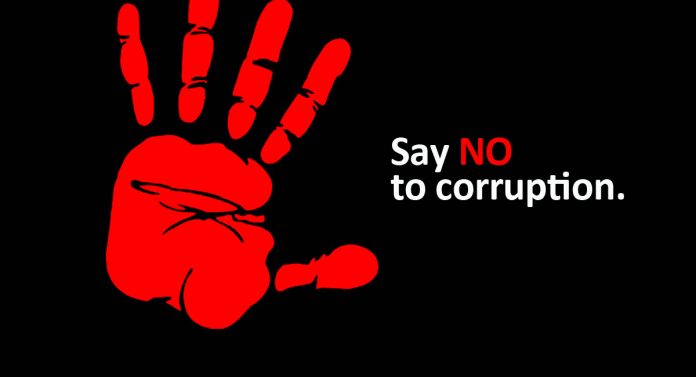Corruption and the way out
Since independence, Nigeria has not been corruption free. Things are always absurd in this country. A day will not pass without hearing a sad thing happening. Unarguably, corruption has been the leading factor contributing to the underdevelopment of the country. No institution is safe from corruption. Over the years, corruption has been ravaging the nooks […]

Since independence, Nigeria has not been corruption free. Things are always absurd in this country. A day will not pass without hearing a sad thing happening.
Unarguably, corruption has been the leading factor contributing to the underdevelopment of the country. No institution is safe from corruption.
Over the years, corruption has been ravaging the nooks and crannies of every sector. Ranging from mismanaging of public funds, embezzlement and siphoning the treasure of the nation.
Historically, no administration; military or civilian, has been found clean since the inception of Nigeria. And till date, no solution has been found to the menace despite the frantic efforts by the government.
Although corruption is a global phenomenon, the menace in this country is tragically overwhelming.
On 29 September, 2000, the Obasanjo-led government inaugurated the Independent Corrupt Practices Commission (ICPC) to minimise the incidence of corrupt practices in the country.
To curb money laundering, in 2003, the Economic and Financial Crimes Commission (EFCC) was also established by President Olusegun Obasanjo as a law agency to investigate financial crimes in the country.
After the creation of ICPC and EFCC, the country is recording enormous development in prosecuting and convicting many prominent Nigeria leaders but with little success.
Unfortunately, few high-profile individuals face the wrath of law while the majority escape justice even when found guilty of the offence. In furtherance, many cases were also buried and the victims are seen in the town enjoying luxurious lifestyles.
Nigerians are the problem of Nigeria. No outsider is laundering our funds. Our main problem is the punishment for corruption. Imprisonment -for a few years- is the highest penalty for offenders.
On this note, I believe there is a need for the introduction of religious principles as opined by many leading figures in the country.
I would like to advise the National Assembly to take into account comprehensive research and findings from the religious leaders so as to deduce laws from the religious books.
I also appeal to the federal government to strengthen the power of the judiciary for the sake of justice, fairness and accuracy.
Abdulganiyu Abdulrahman Akanbi wrote from Ilorin, Kwara State [email protected]
